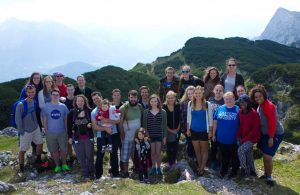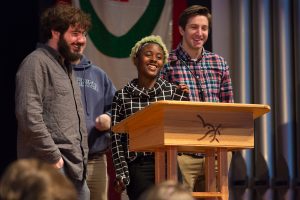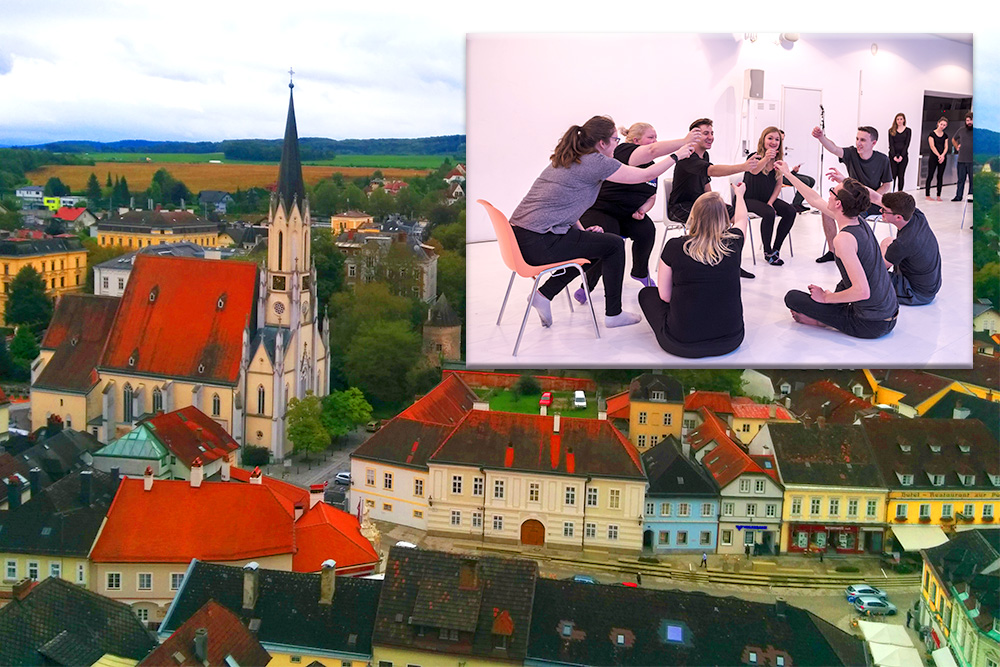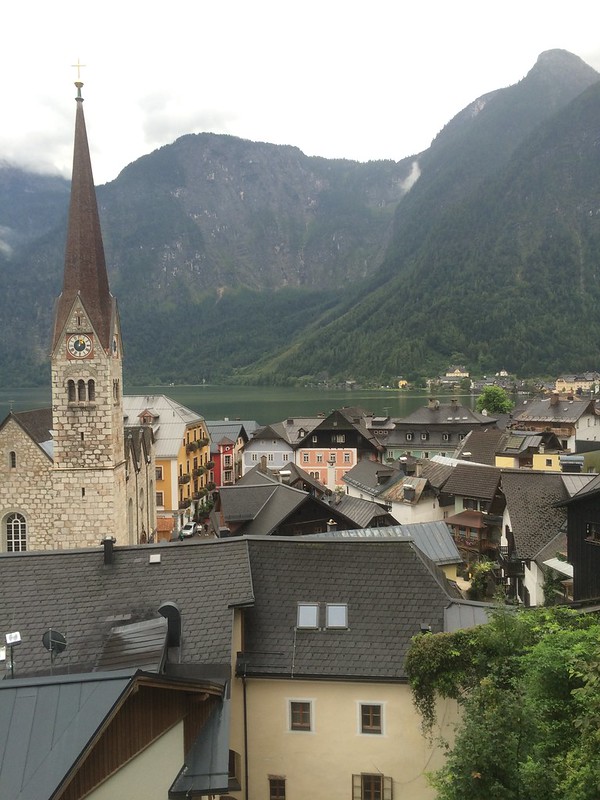“If Salzburg is like your floral grandmother who loves to show you her old scrapbooks, then Vienna is your mysterious great aunt who sits by herself, waiting for you to ask the first question,” wrote junior Liesl Graber in a blog post this past semester. Graber was one of 22 students traveling through Central Europe as part of Eastern Mennonite University’s first theater-oriented cross-cultural trip.
Altogether, the students attended 35 plays during the semester, visited 38 theaters, and produced their own dramatic piece about the different stages of cultural integration.
Professor Justin Poole and his wife Amanda led the trip, accompanied by their three young children. As students, the two spent time in Salzburg, and Justin Poole spent five months in Vienna between 2009 and 2010 studying experimental performance through the Austrian Academic Exchange Service while earning his PhD through the University of Maryland.
Poole wanted students to experience European art and culture, especially that of “artists who used their works to protest against homogenized aesthetics, and for minority groups.” Plays ranged from Mozart’s opera “The Magic Flute” (which premiered in Vienna 225 years prior) to an anti-fascist piece performed by an avant-garde German group.

EMU cross-cultural trips, whether themed or not, are designed to be accessible to all majors, says Director of Cross-cultural Programs Andrew Miller. Just five of the group were theater majors, with many others having past experience with campus theater productions, which are open to all students.
The trips are “flavored” by “leaders’ backgrounds and expertise … the use of theater as a mode or method of learning is an important development in this program,” Miller added.
Vienna, “known as the intellectual, cultural, and musical capital of the world during much of the 19th and 20th centuries,” became home base for eight weeks, says EMU junior Michael Austin. They went on excursions elsewhere in Austria and to Hungary, France, and the Czech Republic, and spent a final two weeks in London.

The travelers studied the German language; European cultural identities, integration and religion; political dissident artists; and art as a means of cross-cultural exchange. One exchange occurred at Connection, a coffee shop which only employs young migrants, and offers language, writing, and financial workshops to Austria’s burgeoning refugee population (primarily from Afghanistan, Iraq, and Syria). Students regularly visited Connection to tutor refugees in English.
Host family scenarios varied, from a quiet apartment to a septuagenarian couple with their multilingual nurses and housekeepers to a house mother who required the shower be squeegeed and bedsheets folded each morning.
Eight days of free travel allowed small groups of students to plan their own short trips to Rome, Ireland, Tuscany, and France. Matej Gligorevic, who now hails from Ephrata, Pa., writes, “this free travel opportunity allowed me to see my family in Konjic, Bosnia and Herzegovina again after five years … there I spent many days catching up with old friends and spending quality time with my grandmother in her flat.”
Gligorevic, Esther Ajayi, Corey Hostetler and Caleb Townsend went to see “No Man’s Land” while in London, a play about two aging writers played by Ian McKellen and Patrick Stewart. They waited outside in the cold afterward, and finally intercepted McKellen – who told them, “I’m going to entrust America to you.”

